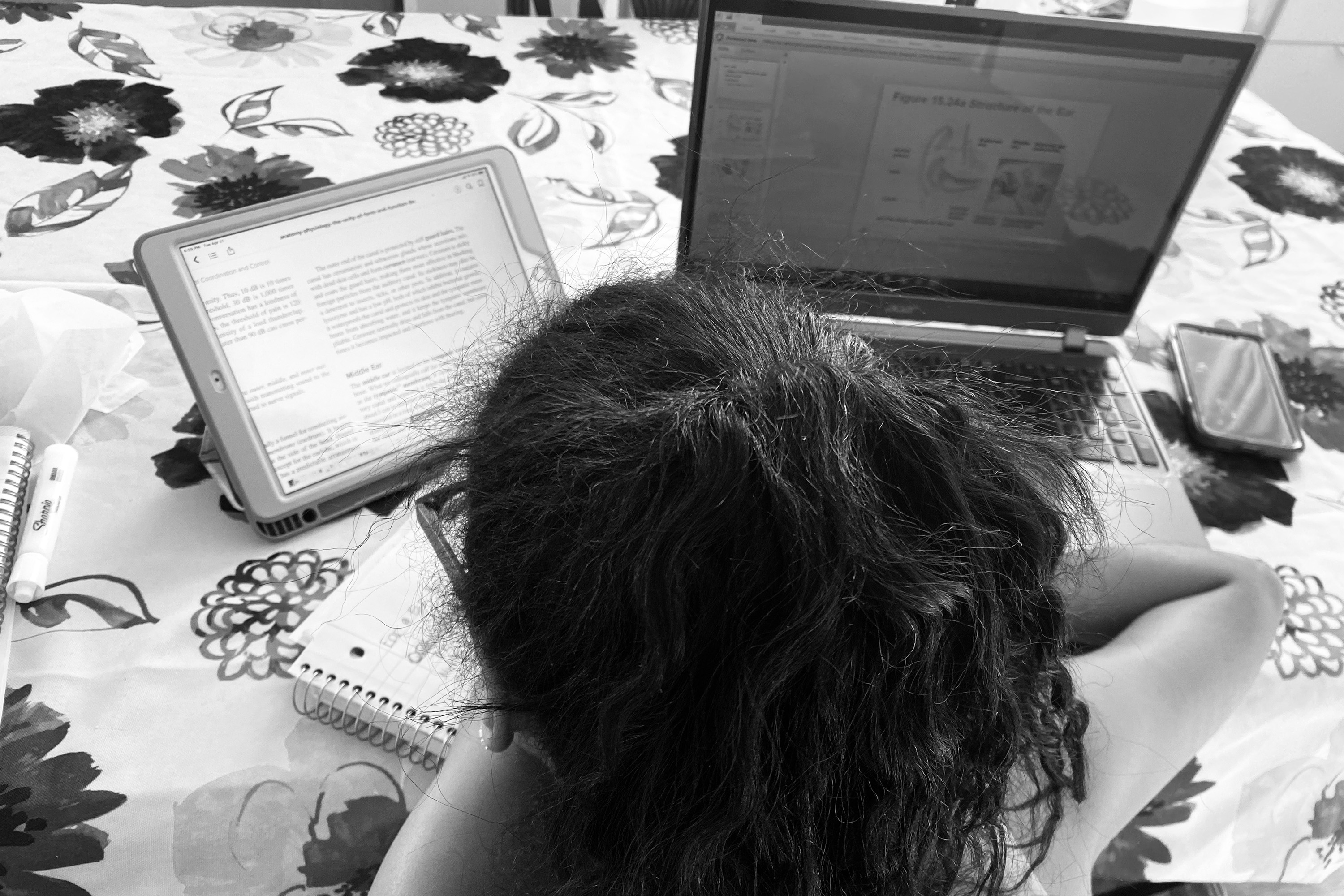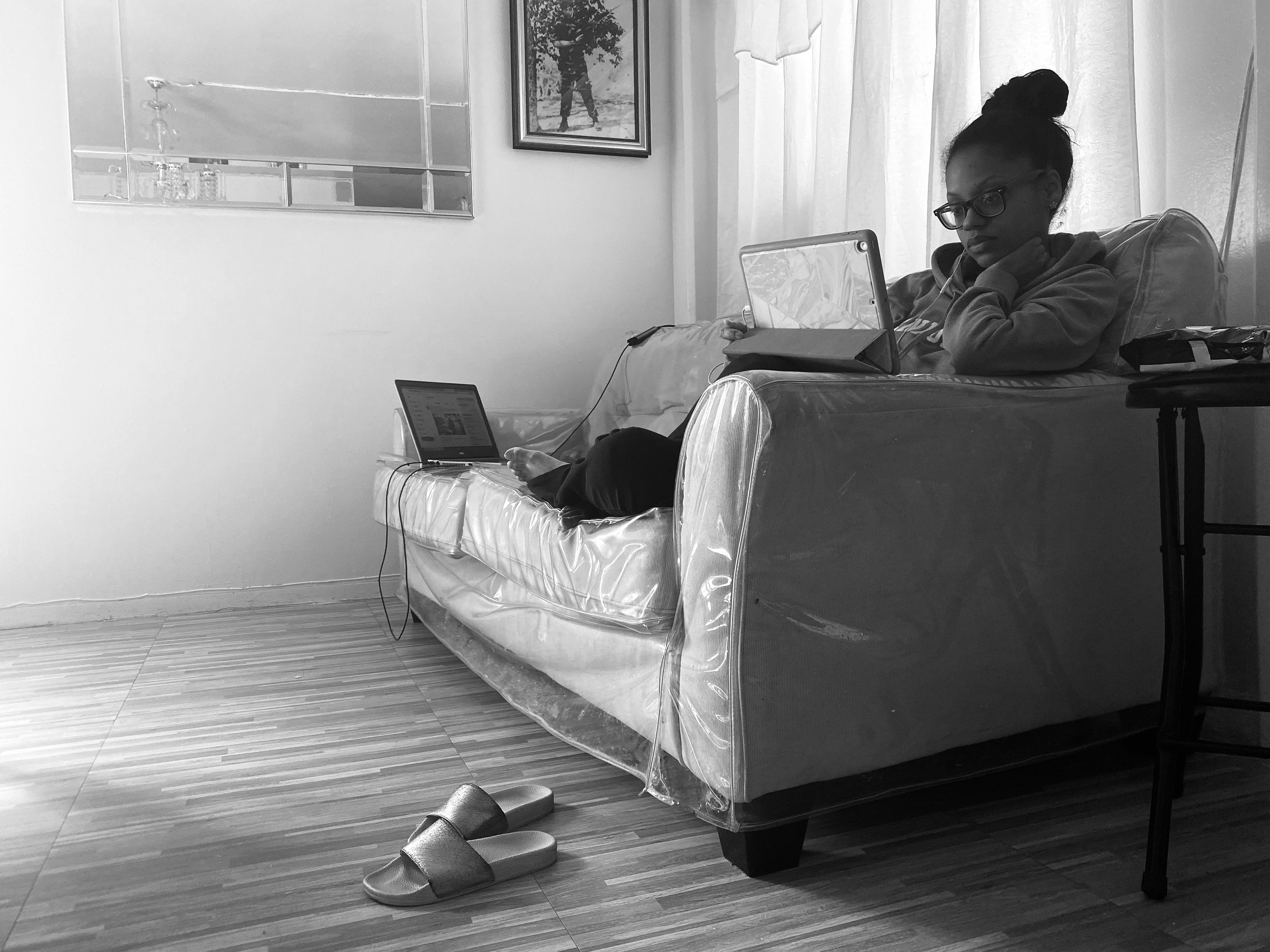SU students make adjustments to online learning
How SU students adjust to online learning amidst COVID-19 outbreak

The thought of rolling out of bed, staying in your pjs, and turning on your laptop to log into class seemed like a dream. No more missed breakfast, no more waiting in the cold for the bus, and no more having to run back to your dorm because you left an assignment on your desk. Online learning hinted at a luxury that was too good to be true.
On March 10th, when Syracuse University announced that classes will be shifted online after spring break due to coronavirus concerns, many students were forced to abruptly transition to a work-from-home lifestyle that came with positives, challenges, and adjustments.
Sue-Jin Green, an English doctoral student in the College of Arts and Sciences, and a teaching assistant for American Cinema, is used to being productive outside of her Syracuse apartment. Whether at Bird Library or in her TA office, she says her ability to focus has been reduced since the switch to online learning. The most challenging part for Green is being a TA.
“There is always a struggle to keep students engaged,” she said. “Having to do so online without much prior training has been tough.”
Despite the challenges, Green says as a student, online learning is still an effective experience. “I have had to learn to be flexible both in expectations of myself and of my students. This situation has necessitated some creativity in conducting classes and maintaining the human element in education,” she said.

For Lisa Chen, a graduate student in the College of Arts and Sciences, online learning has taken away from the experience of being a biomedical forensic science major. Although Chen says she is adjusting well to taking classes online, she isn’t able to do hands-on experiments anymore. Now her TA conducts the experiments, describes the steps, photographs the outcome, and uploads the results to a PowerPoint. The class then writes their lab reports based on the information on the PowerPoint.
“I think I am learning what I need from my classes but it’s just delivered in a different way,” she said. “It’s a lot less time consuming on the bright side.”
Still in her Syracuse apartment, Chen says that being at home has made it hard for her to focus.
“I am constantly on Facebook, or watching a show or eating and that makes it hard to sit down and type reports. It also feels very monotonous and I feel tired even though I didn’t do much,” she said.
For students that are on different coasts, like Luis Solano, a senior economics major who is home in Los Angeles, adjusting to online learning has also made him adjust his clocks. With a three hour time difference, Solano finds himself brushing over due dates and turning in assignments hours earlier than expected. Although he feels lucky he doesn’t have any 8 a.m. classes, Solano credits Rick Burton, a sports management professor in the College of Sports and Human Dynamics, for making his online learning experience captivating.
“He has gone out and has brought in so many guest speakers for our classes. We’ve had maybe three or four guest speakers and they give us so much insight,” he said. “They make our class involved and engaging. I believe that’s something that he really understands and we may not have had that if we were in a classroom environment.”





